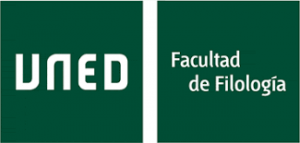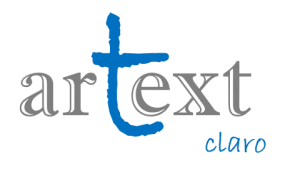Information and Communication Technologies for the e-Administration: towards the improvement of the communication between Administration and citizenship by means of plain language [TIC-eADMIN] (PGC2018-099694-A-I00)
Research project developed at Departamento de Filologías Extranjeras y sus Lingüísticas from the Facultad de Filología in Universidad Nacional de Educación a Distancia (UNED), in the framework of the ACTUALing research group, with the collaboration of the IULATERM group .
Funding

This project has been funded by the 2018 call “Proyectos I+D del Subprograma Estatal de Generación de Conocimiento” (Ministry of Science, Innovation and Universities, Spain).
Budget: 27.830 euros + 1 FPI predoctoral contract (98.250 euros).
Aims and methodology
The main aim of this project is to develop an online ICT tool to help public employees to write administrative texts in Spanish. Our motivation is to contribute to the goal of citizens receiving texts written in plain language.
To achieve the main aim, three specific objectives have been set:
SPECIFIC OBJECTIVE 1: Investigate the possibilities that Natural Language Processing (NLP) offers to automatically detect linguistic phenomena that are not in line with the plain language recommendations for administrative texts.
SPECIFIC OBJECTIVE 2: Analyse and systematize the prototypical linguistic features of some specific textual genres in the Administration domain.
SPECIFIC OBJECTIVE 3: Design and implement an ICT tool to improve written communication between the Administration and the general public in the context of e-Administration. Specifically, this tool will be integrated into the technological infrastructure of the arText system. Thus, this system will offer a new function: to help public employees to write texts addressed to the general public in plain language.
|
METHODOLOGY |
|||
| STAGE 1 | STAGE 2 | STAGE 3 | STAGE 4 |
| Analysis of recommendations for plain language in Spanish. | Design and implementation of the ICT tool into arText. | Evaluation of the tool. | Tool dissemination. |
In stage 1, the following bibliographical references have been taken into account:
Carretero, Cristina. (2019). Comunicación para juristas. Valencia: Tirant lo Blanch.
Carretero, Cristina; Pérez, Jorge M.; Lanne-Lenne, Luis; de los Reyes, Gema. (2017). Lenguaje Claro. Comprender y hacernos entender. Sevilla, Madrid: Instituto de Lectura Fácil y Clarity.
Comisión Europea. (2015). Cómo escribir con claridad. Luxemburgo: Oficina de Publicaciones de la Unión Europea.
Jiménez Yáñez, Ricardo M. (2016). Escribir bien es de justicia. Cizur Menor: Aranzadi.
Ministerio de Justicia. (2011). Informe de la Comisión de modernización del lenguaje jurídico. Madrid: Ministerio de Justicia.
Montolío, Estrella; Tascón, Mario. (2017). Comunicación Clara. Guía Práctica. Madrid: Ayuntamiento de Madrid.
Vilches, Fernando; Sarmiento, Ramón. (2010). Manual de lenguaje Jurídico-Administrativo. Madrid: Dykinson.
RESULTS
As a result of stage 2, we have created arText claro, the first assisted writing system that helps to produce texts in plain language in Spanish. Currently, this system helps Public Administration staff to write texts addressed to the general public in plain language.
Team
- Iria da Cunha (director) (UNED)
- M. Ángeles Escobar (UNED)
- Eva Samaniego (UNED)
- Susana Viñuales (UNED)
- Sara Pistola (FPI grant linked to the project) (UNED)
- Juan-Antonio Núñez (Universidad Autónoma de Madrid)
- M. Amor Montané (Universitat Pompeu Fabra)
- Maite Taboada (Simon Fraser University)
- Gerardo Sierra (Universidad Nacional Autónoma de México)
- Luis Hysa
Collaborating entities
Scientific production
Click here.
News
Click here.




